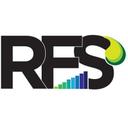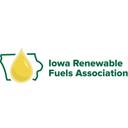Policy
Rep. Beth Van Duyne, R-Texas, on Jan. 16 introduced a bill that aims to repeal the Section 45Z clean fuel production credit. The tax credit, established by the IRA, supports the production of various low-carbon transportation fuels.
SAF Magazine, in collaboration with the CAAFI, has announced the 2025 North American SAF Conference & Expo will be held Sept. 22-24 in Minneapolis, Minnesota, at the Minneapolis Convention Center. Speaker abstracts can be submitted through May 9.
Brooke Rollins, President Donald Trump’s nominee to serve as secretary of agriculture, discussed her support for biofuels and addressed concerns over her ties to the oil industry during a Senate confirmation hearing on Jan. 23.
The Senate Environment and Public Works Committee on Jan. 23 voted 11-8 to advance the nomination of Lee Zeldin to serve as administrator of the U.S. EPA. The next step in the confirmation process is a full Senate vote.
Sen. Jerry Moran, R-Kan., and a bipartisan groups of colleagues on Jan. 16 reintroduced the Farm to Fly Act, a bill that aims to accelerate the production and development of sustainable aviation fuel (SAF).
USDA Rural Development on Jan. 21 announced the launch of a new Clean Energy website that aims to support the expanded use of biomass, wind, solar, hydropower and geothermal energy in rural power production.
The U.S. EPA on Jan. 17 published its third triennial report to Congress on biofuels and the environment. The document, the third in a series of required reports to Congress, takes a critical view of the RFS’s impact on the environment.
Clean Fuels is asking the U.S. EPA to pause the rulemaking process on its proposed partial waiver of 2024 cellulosic volumes until it can provide a full accounting of all available cellulosic RINs for 2024 and consider the impact of SREs.
The U.S. EPA on Jan. 17 released updated data showing that more than 25.22 billion renewable identification numbers (RINs) were generated under the Renewable Fuel Standard in 2024, up from 23.85 billion in 2023.
Lee Zeldin, President-elect Donald Trump’s nominee to serve as U.S. EPA administrator, on Jan. 16 responded to questions regarding his support for the RFS, E15 and SAF during a hearing held by the Senate Environment and Public Works Committee.
The U.S. EPA on Jan. 16 released updated small refinery exemption (SRE) data, showing 11 new SRE petitions have been filed under the Renewable Fuel Standard. The agency denied one SRE petition and 139 SRE petitions remain pending.
The USDA on Jan. 15 published an interim rule that establishes guidelines for quantifying, reporting and verifying GHG emissions associated with the production of biofuel feedstock commodity crops grown in the U.S.
The U.S. Department of Energy on Jan. 15 released the 45ZCF-GREET model. The announcement follows the U.S. Department of the Treasury and Internal Revenue Service guidance on the 45Z clean fuels production credit released on Jan. 10.
The U.S. DOE, USDA and FAA on Jan. 13 released Sustainable Aviation Fuel (SAF) Grand Challenge 2021-2024 Progress Report, which underscores the importance of continued investment in the rapidly growing biofuels industry.
In 2024, Iowa biodiesel production ticked up to 353 million gallons, up from 350 in 2023. Iowa biodiesel plants managed to power through being undercut by a drastically low RFS blending level, but could not escape uncertainty surrounding tax policy.
DOE announces $25 million to advance the US aquaculture industry for biomass production in the deep ocean
The U.S. DOE Advanced Research Projects Agency-Energy (ARPA-E) has announced $25 million to develop a U.S.-led marine energy hydrocarbon and industrial commodity supply through the deep-water cultivation of seaweed biomass at million-ton scale.
The U.S. Department of Energy Bioenergy Technologies Office (BETO) announced up to $23 million in funding to support research and development (R&D) of domestic chemicals and fuels from biomass and waste resources.
The USDA on Jan. 10 awarded $60 million in Higher Blends Infrastructure Incentive Program grants. The funding supports 70 projects in 24 states that aim to increase consumer access to higher blends of ethanol and biodiesel.
Calumet Inc. on Jan. 10 announced the closing of a $1.44 billion U.S. Department of Energy loan guarantee to fund construction of Montana Renewables’ MaxSAF initiative, which aims to boost SAF capacity at the biorefinery to 300 MMgy.
Treasury and the IRS on Jan. 10 released guidance on the 45Z clean fuels production credit, including a notice of intent to propose regulations and a notice providing the annual emission rate table for the credit.
The Missouri Agricultural and Small Business Development Authority (MASBDA) announced it has invested nearly $3.4 million in projects that increase the distribution and use of higher blends of ethanol and biodiesel in the State of Missouri.
Tidewater Renewables Ltd. has filed a countervailing (anti-subsidy) and anti-dumping duty complaint with the Canada Border Services Agency. The complaint targets unfairly traded imports of renewable diesel from the U.S.
USDA announces appointments to the Greenhouse Gas Technical Assistance Provider and Third-Party Verifier Program Advisory Council
The USDA has appointed 36 members to serve on the newly formed Greenhouse Gas Technical Assistance Provider and Third-Party Verifier Program Advisory Council, informally known as the Growing Climate Solutions Act Advisory Council.
The U.K.’s sustainable aviation fuel (SAF) mandate officially came into force on Jan. 1. By law, SAF must now account for at least 2% of all jet fuel in flights taking off from the U.K. The mandate is set to expand to 10% in 2030 and 22% in 2040.
Vertex Energy Inc. could be required to retire over 18.7 million RIN by March 31, 2025, to satisfy its 2023 and 2024 RFS blending obligations under a proposed Consent Decree and Environmental Settlement Agreement lodged by the U.S. government.
The U.S. EPA on Jan. 2 denied two small refinery exemptions (SREs) for RFS compliance year 2023, according to updated data posted to the agency’s online SRE data dashboard. No other actions were taken and 129 SRE petitions remain pending.
The U.S. DOE has announced its intent to issue funding to support high-impact research and development (R&D) projects in two priority areas: sustainable propane and renewable chemicals and algal system cultivation and preprocessing.
The U.S. EPA on Dec. 19 released data showing that 2.03 billion RINs were generated under the RFS in November, up from 2.01 billion generated during the same month of 2023. Nearly 22.9 billion RINs were generated during the first 11 months of 2024.
The U.S. EPA on Dec. 19 released updated small refinery exemption (SRE) data reporting that one new SRE petition has been filed under the Renewable Fuel Standard during the past month. According to EPA, 131 SRE petitions are currently pending.
The USDA Rural Business Cooperative Service on Dec. 13 announced it is extending the deadline to apply for the agency’s Section 9003 loan guarantee program. Applications must now be submitted before Dec. 31.
Advertisement
Advertisement
































